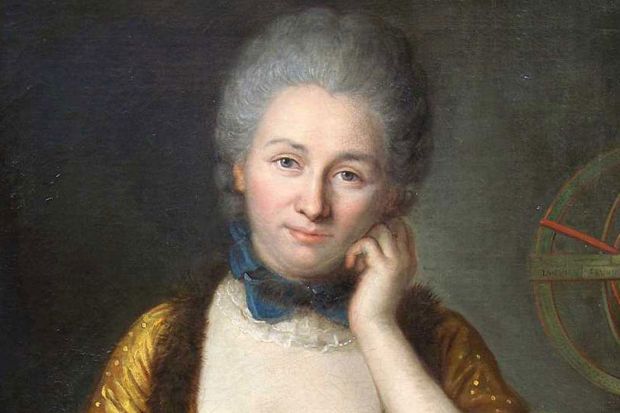Women “can…be educated”, Georg Wilhelm Friedrich Hegel, the German philosopher, once wrote, “but their minds are not adapted to the higher sciences, philosophy, or certain of the arts”.
A collaboration between Duke University, the University of Pennsylvania and Columbia University would beg to differ, and at a time when women studying philosophy in the US are in the minority, the group are spearheading an effort to bring attention to the overlooked history of women in the field.
“The time seemed ripe to do something that might have a positive impact on the discipline,” said Andrew Janiak, an associate professor at Duke who specialises in the history of philosophy.
The result is Project Vox, a website that lists the accomplishments of four female philosophers – Margaret Cavendish, Anne Conway, Gabrielle Émilie Le Tonnelier de Breteuil and Damaris Masham – and offers open source teaching materials and other tools to widen public knowledge of them.
“What I learned in college is that there weren’t any women who were important during the Enlightenment, and historically that’s just not accurate,” Professor Janiak said.
“The standard idea would be, well, look, women were excluded from colleges and universities, Oxford and Cambridge – they weren’t allowed to get an education and they weren’t allowed to join things like the Royal Society or the Royal Academy of Sciences in Paris,” he said. “That’s the answer many philosophers would give. But it turns out it’s not correct. There were plenty of women who, though they were usually excluded from university education, were taken seriously and did find a way to publish.”
It was largely the sexism of subsequent scholars that omitted these women from the canon, Professor Janiak said. Project Vox seeks not only to restore them to their rightful place, but also to elevate them to role model status.
Although women in the US account for more than 53 per cent of all doctoral degrees awarded, according to the US Department of Education, they earn less than 27 per cent of PhDs in philosophy, the National Opinion Research Center at the University of Chicago reports. Women represent an even smaller proportion of philosophy faculty – about one in five – an independent review of top philosophy departments has found. (At Duke, four of the 13 full-time and one part-time faculty members are women.)
“There’s a gender crisis in philosophy,” said Professor Janiak. “Or it might be better to say that people have recently recognised that there’s a gender crisis. There is finally a lot of data now about the demographics of the discipline and many people have been shocked to learn that we are not only at the bottom of the humanities in terms of gender diversity, but also behind every discipline besides physics and engineering.”
He hopes that Project Vox, which had 5,000 visitors in its first five days after the website went live, will help to change that.
“It’s an interesting case where you can imagine a feminist argument for it, but you can also imagine a conservative argument,” Professor Janiak said.
“The feminist argument may seem obvious – that this will inspire women to study philosophy more,” he said. “The conservative argument is just [that] you have to teach people the actual history. And if Émilie du Châtelet was famous in France and had a huge impact on philosophy in the 18th century, then that’s what you need to tell your students.”
Register to continue
Why register?
- Registration is free and only takes a moment
- Once registered, you can read 3 articles a month
- Sign up for our newsletter
Subscribe
Or subscribe for unlimited access to:
- Unlimited access to news, views, insights & reviews
- Digital editions
- Digital access to THE’s university and college rankings analysis
Already registered or a current subscriber? Login





